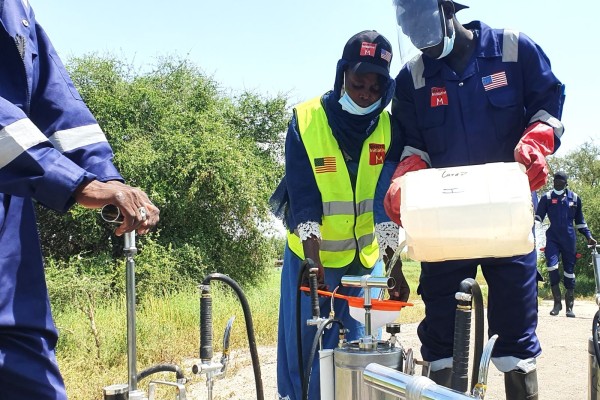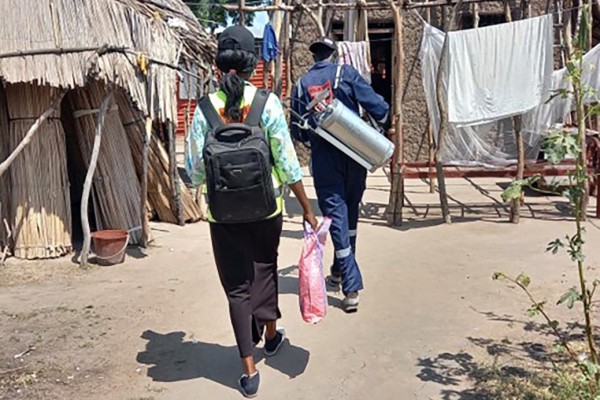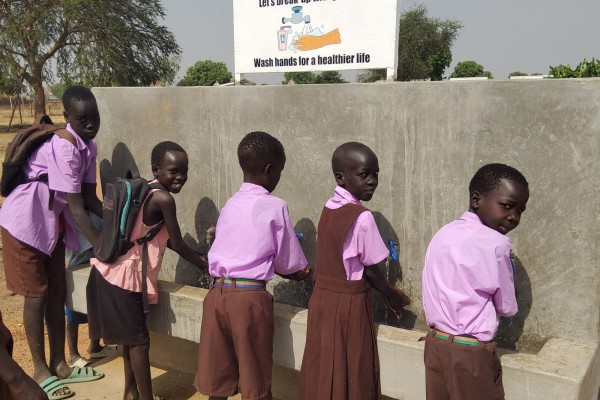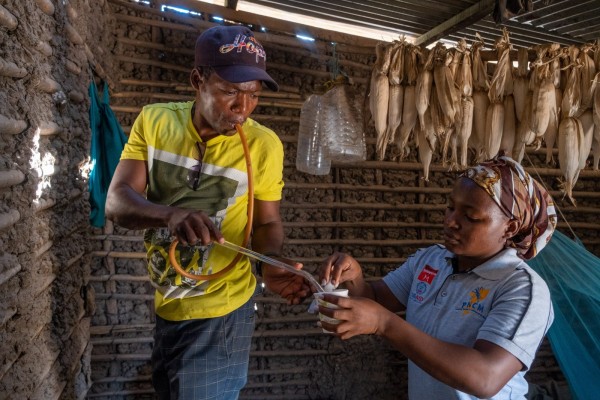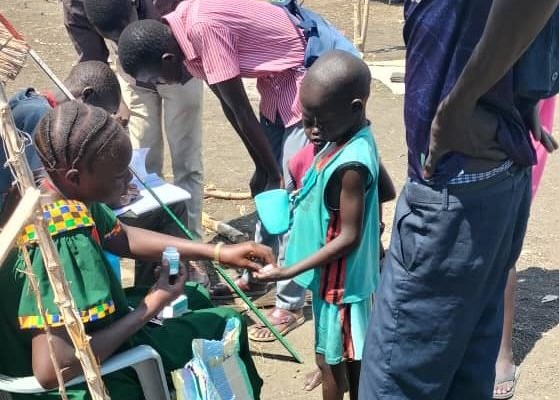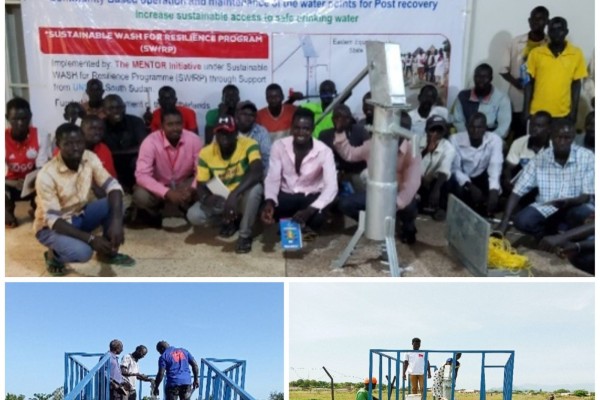Home to around 12.4m million people, South Sudan is emerging from a prolonged civil conflict with a very high human cost. More than half of the South Sudanese population requires urgent food assistance. About 40% of the population is internally displaced or live as refugees in neighbouring countries, and more than 80% fall below the poverty line.
Extreme flooding and internal conflict has further worsened living conditions and caused an alarming rise in food insecurity for millions of South Sudanese, further adding to the growing public health crisis.
Displaced people are particularly vulnerable to communicable diseases, as exemplified by the increase in malaria outbreaks in recent years. particularly in the country’s camps for internally displaced persons (IDP), Protection of Citizen Camps (PoCs), and refugee camps.
Because of the poor living conditions, these communities are more susceptible to a number of diseases – with water-borne and vector-borne diseases (VBD) being a particular problem. Due to the fact that almost all shelters in camps are simple mud and tarpaulin huts, refugees are exposed and vulnerable to the bites of malaria mosquitoes and other disease-transmitting insects, such as sandflies.
This vulnerability increases during the rainy season as a result of breeding site multiplication and subsequent increases in vector populations. Sanitation worsens as latrines overflow and water gets contaminated through open defecation. It is estimated that 44% of the population are at risk of communicable and non-communicable diseases and around 75% of all child deaths in South Sudan are attributable to preventable diseases, such as diarrhoea, malaria and pneumonia.[1]
[1] UNOCHA (2022). South Sudan Humanitarian Needs Overview. Available here.
The MENTOR Initiative has been active in South Sudan since May 2012, providing Integrated Vector Management (IVM) for malaria and other VBDs through the continued support of US Bureau of Population, Refugees, and Migration(BPRM) and the South Sudan Humanitarian Fund (SSHF).
MENTOR has also become an active partner in the delivery of UNICEF-funded ‘hard’ and ‘soft’ Water, Sanitation and Hygiene (WASH) activities and Mass Drug Administration (MDA) for Neglected Tropical Diseases (NTDs) in specific vulnerable locations supported by The END Fund and the Reaching the Last Mile Fund.
MENTOR has focused its support in communities in Warrap, Abeyi, Northern Bahr el Ghazal, Upper Nile, Lakes, Unity state and Eastern Equatoria states. The map below shows MENTOR’s recent and ongoing operational sites in South Sudan.

Main activities
- Annual Indoor Residual Spraying (IRS) campaigns target every shelter in the camps as well as homes of nearby host communities.
- Information, Education and Communication, and Behaviour Change (IEC/BCC) activities aim to encourage people to seek treatment and take preventative measures against typical diseases.
- Training and technical coaching on diagnosis, treatment and case management for health care workers and managers/supervisors of health facilities in and around the camps.
- Improving WASH through Community Led Total Sanitation (CLTS). This approach facilitates and mobilises communities to eliminate open defecation.
- ‘Hard’ WASH activities to increase and improve access to clean and safe drinking water supply in the community through the rehabilitation of hand pumps that can withstand seasonal floods.
- Mass Drug Administrations for Neglected Tropical Diseases
- Capacity building and community ownership to build capacity of healthcare worker staff and local surveillance systems.
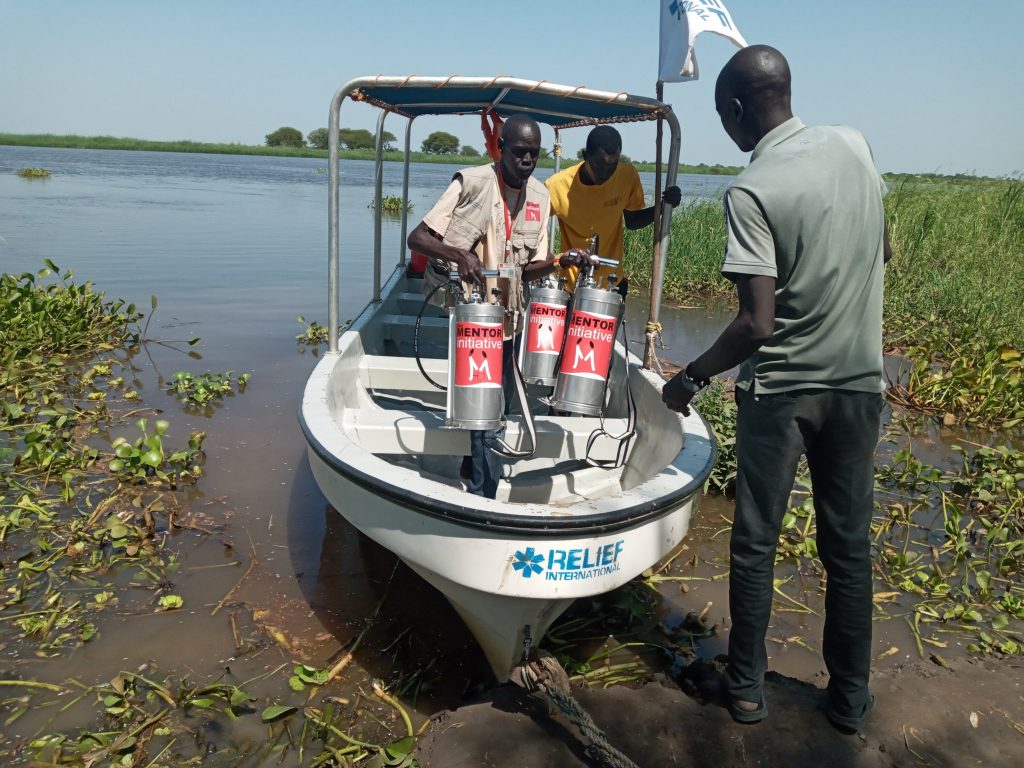
Looking ahead
MENTOR is committed to delivering vector control, health and WASH services to the most vulnerable. We will continue to work with the Ministry of Health and both health and WASH partners to identify and co-ordinate activities with other NGOs to ensure that there is a comprehensive response to the needs of the people.
MENTOR is expanding its activities to include Ebola preparedness and prevention and will endeavour to help reduce the overall disease burden and build up the country’s health system capacity for as long as is necessary.

